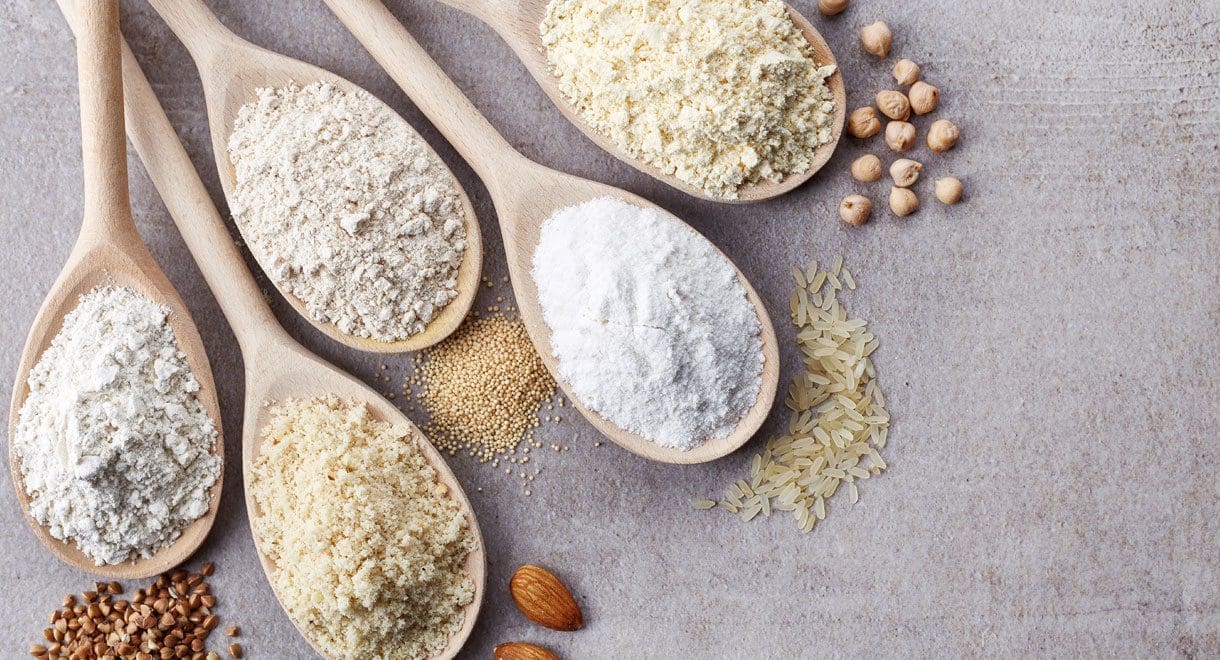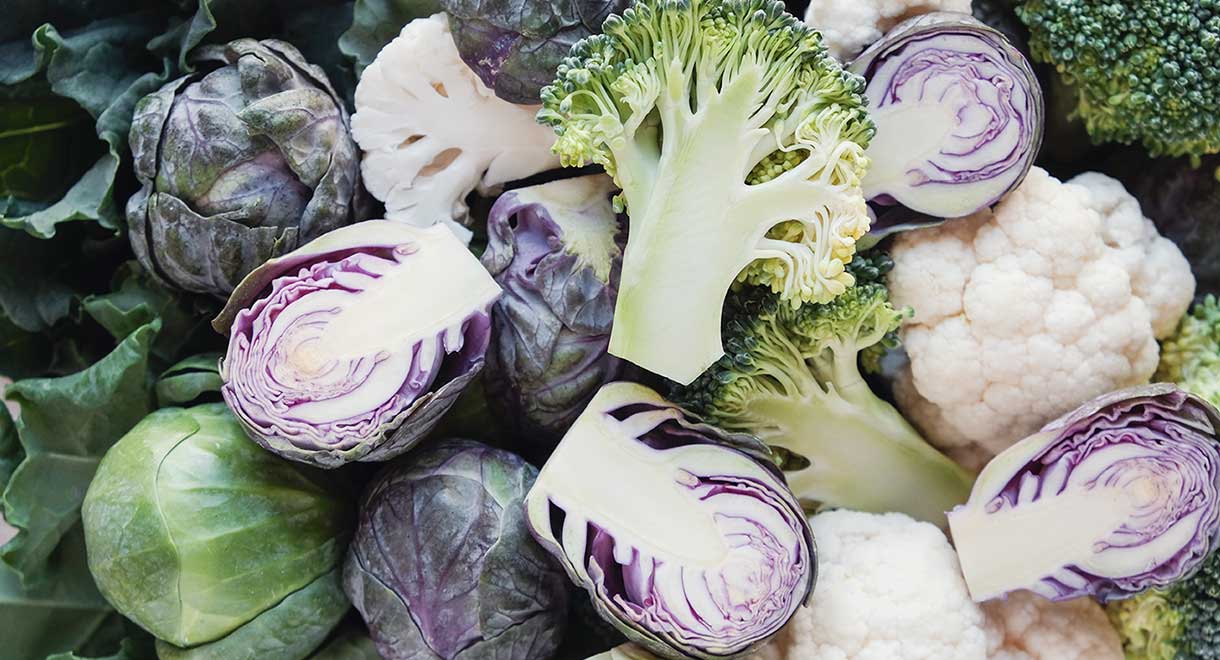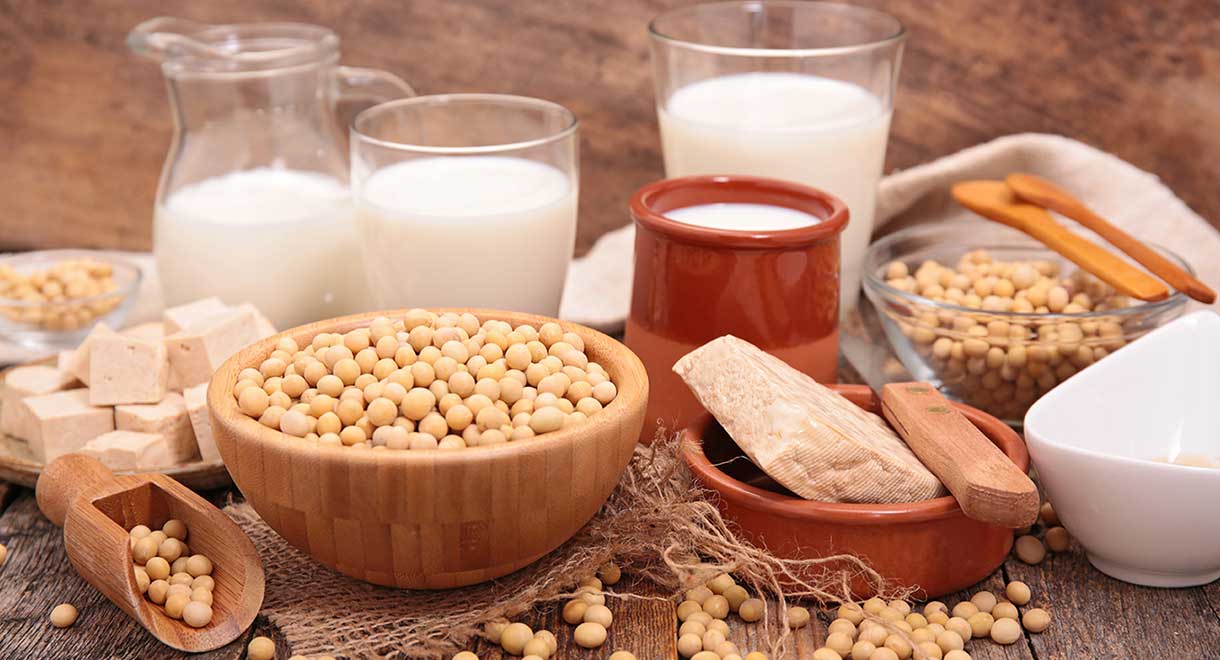These 6 foods could be harming your thyroid
By naturopath Margaret Jasinska
Thyroid problems are one of the most common health conditions we see in our patients. There seems to be an epidemic of thyroid problems at the moment, and we are seeing them in younger and younger patients. Women are at greater risk than men, particularly after childbirth or during menopause.
Having a thyroid condition can make it much more difficult to lose weight, but it can affect your life in other ways – you will probably be tired and may be constipated. You may also feel depressed; suffer with fluid retention and dry skin. You could lose scalp hair. Yes, having a thyroid problem can greatly reduce your quality of life.
If you are concerned about the health of your thyroid gland, you need to know which foods can adversely affect it. For healthy thyroid function and consequently an efficient metabolism, try to keep these foods out of your diet.

1. Gluten
The majority of thyroid problems are caused by autoimmune disease. That means the immune system produces antibodies that cause the thyroid gland to malfunction. The thyroid gland can either become underactive (Hashimoto’s thyroiditis) or overactive (Graves’ disease).
Gluten is a strong trigger of autoimmune disease in genetically susceptible people. Gluten can increase inflammation in the body, and in some people it can cause the immune system to produce antibodies that attack your own organs or tissues. Removing gluten from your diet should help to improve the health of your thyroid gland and it may also help reduce your risk of developing another autoimmune disease. Gluten is found in wheat, rye, barley, spelt, kamut and several processed foods.

2. Dairy products
Dairy products can also create a lot of inflammation in the body. Many people find dairy products difficult to digest and they are a common cause of irritable bowel syndrome, bloating and reflux. If dairy products are disrupting your digestion, it means you will not be absorbing the nutrients from your meals as well. The protein in dairy products is called casein and in many people it worsens autoimmune disease just as much as gluten. When we refer to dairy products we mean cow’s milk and foods made from it, such as cheese, ice-cream and yoghurt. Yoghurt made from A2 milk is well tolerated by some people.

3. Sugar
You already know that sugar is bad for you; now you know it’s bad for your thyroid gland as well. This is because of the destructive effects sugar has on your immune system.
It raises inflammation in your body and makes all autoimmune diseases worse. Sugar fuels the growth of all sorts of harmful pathogens in your gut. It fosters gut infections. If your gut lining is overgrown with harmful microbes, they inflame the lining of your intestines and cause leaky gut syndrome. This is an initiator and driver of all autoimmune diseases.
Glutamine is excellent for helping to heal the damage to the gut caused by sugar or other factors. It is found in Dr Cabot’s Gut Health powder, along with slippery elm, pectin and the probiotic Saccharomyces boulardii. If you would like to have something sweet, Nature Sweet is an all natural healthy alternative.

4. Large amounts of raw cruciferous vegetables
Cruciferous vegetables include cabbage, broccoli, cauliflower, kale, Brussels sprouts and others. You can still eat these vegetables, but don’t go overboard and don’t consume them raw. These vegetables contain substances called goitrogens. They are compounds that can inhibit the absorption of iodine by your thyroid gland. Iodine is a critical component in the manufacture of thyroid hormones.
If you don’t have sufficient iodine in your diet, you simply won’t be able to make enough thyroid hormones. The problem is, most people are already iodine deficient because they aren’t eating enough foods rich in this mineral. Eating a lot of goitrogen containing vegetables just makes this situation even worse.
Iodine is found mainly in seaweed and wild seafood (not farmed fish). Many people don’t get enough of these foods in their diet. Thyroid Health capsules contain iodine, plus selenium, vitamin D and zinc, which are all helpful for healthy thyroid gland function.

5. Industrial seed oils
This refers to vegetable oil such as corn oil, sunflower, safflower, soybean, cottonseed, canola, grape seed and rice bran oil. These oils are all very high in polyunsaturated fats. Your body does require some polyunsaturated fat but the problem with those oils mentioned, is the delicate fats have been damaged. The extraction process (using heat and chemical solvents) causes the polyunsaturated fats to become damaged and oxidised. If you then cook with those oils, they become damaged even further.
Damaged fats create a great deal of inflammation in your body. They act as free radicals and cause wear and tear to your organs and tissues. Healthy fats to include in your diet include olive oil, macadamia nut oil, avocado oil, raw nuts and seeds, oily fish, avocados, coconut oil and animal fats, preferably from grass fed animals.

6. Soy
There are many good reasons to avoid soy in your diet. Most of the soy in the world now comes from genetically modified beans. Soy is very difficult to digest, so even if soy beans supposedly contain a fair amount of protein on paper, you absorb very little of that protein because of the enzyme inhibitors in soy beans. Adequate protein in your diet is very important, because thyroid hormones are made from the amino acid tyrosine. Inadequate intake or poor absorption can compromise hormone production. Taking a tyrosine supplement may be helpful. The lectins in soy can cause irritation to the gut lining and worsen leaky gut syndrome in people with autoimmune disease. Soy is also a source of goitrogens which inhibit iodine absorption.
If you would like more information about keeping your thyroid gland healthy, see our book Your Thyroid Problems Solved and Healing Autoimmune Disease: A plan to help your immune system and reduce inflammation.








Leave A Comment